
The term “Christian nationalism” is receiving increasing attention not only in political discourse but also in academia. Although the general assumption is that Christian nationalism is a phenomenon specific to the United States, it is in truth a widespread phenomenon that has been around in some form since the 20th century, but one that has become more pronounced in the last decade or so. Christian nationalism is of specific concern for Türkiye; as the historical “Turkish/Muslim other” of the predominantly Christian Western countries who are the dominant players of the international order, it is at risk of being targeted by discriminatory policies inspired by Christian nationalism.
Since Christian nationalism carries highly negative connotations, it is important to choose words carefully when dealing with this subject. A careless approach will mean implicating individuals and groups who may only be partially affiliated with Christian nationalism. A person may be a devout Christian, a staunch nationalist, or both, but this does not automatically make her/him a Christian nationalist.
So, what does “Christian nationalism” mean? In its most popular context of the United States, it may be defined as follows,
“Christian nationalism is the belief that the American nation is defined by Christianity, and that the government should take active steps to keep it that way. Popularly, Christian nationalists assert that America is and must remain a ‘Christian nation’—not merely as an observation about American history, but as a prescriptive program for what America must continue to be in the future. […]
Christian nationalists […] believe that Christianity should enjoy a privileged position in the public square. The term ‘Christian nationalism’ […] accurately describes American nationalists who believe American identity is inextricable from Christianity.”[1]
The following may be added to this description,
“Simply put, Christian nationalism is a cultural framework — a collection of myths, traditions, symbols, narratives, and value systems — that idealizes and advocates a fusion of Christianity with American civic life, […]
However, embrace of the ideology is not black and white but rather a spectrum, with some Americans believing aspects of the concept while rejecting others. [The following central theme is consistent, however;] American society and government should be guided by Christian principles and led by Christians.
[…] Christian nationalists [emphasize] the Christian mandate to [convert] people of all nations to the religion.”[2]
Alternatively described as a “political ideology”, “cultural framework”, or “social movement”, Christian nationalism is frequently associated with toxic or controversial phenomena[3] such as racism, white supremacy, xenophobia, nativism, Islamophobia, anti-Semitism, misogyny, homophobia, political authoritarianism, jingoism, and violent extremism. Christian nationalism reached its peak notoriety in the US in the wake of the violent protests and attacks carried out in and around the US Capitol Building on 6 January 2021 by supporters of the former US President Donald Trump. Reports of this incident have led many commentators to conclude that the organizers and participants of the protests and attacks were primarily motivated by the tenets of Christian nationalism.
As is evident, Christian nationalism is a very loaded term, and is viewed as a worrying political and social trend that is gaining traction especially amongst supporters and members of Republican Party of the US. A set of survey results concerning Christian nationalism are reported to have revealed the following statistics:
“[…] 52% of Americans could be classified as either ‘ambassadors’ or ‘accommodators’ of Christian nationalism, while the rest could be considered ‘resisters’ or ‘rejecters.’
Accommodators, defined as those who are less decided but lean towards accepting Christian nationalism, were the largest group at about 32%. Ambassadors, or those who fully embraced Christian nationalism, made up a fifth of Americans.
Ambassadors believe the US has a special relationship with God and that the government should declare the country a Christian nation, advocate for Christian values, and return prayer to public schools […]”.[4]
Christian nationalism finds most of its adherents in the US amongst Caucasians (“white people”), conservatives, and evangelical Protestant Christians[5], although these people do not necessarily identify themselves as “Christian nationalists.” Despite the prominence of evangelicals among Christian nationalists, many Protestant groups (including some who identify as evangelicals) are increasingly voicing strong opposition against Christian nationalism and its tenets.[6] They argue that Christian nationalism perverts the traditional conciliatory and peaceful teachings of Christianity for an exclusionary and militant political agenda:
“[…] Christian nationalism is calling evil good and good evil; it is taking the name of Christ as a fig leaf to cover its political program, treating the message of Jesus as a tool of political propaganda and the church as the handmaiden and cheerleader of the state. […]
Christian nationalism is […] a political ideology focused on the national identity of the United States. It includes a specific understanding of American history and American government that are, obviously, extrabiblical—an understanding that is contested by many historians and political scientists. Most importantly, Christian nationalism includes specific policy prescriptions that it claims are biblical but are, at best, extrapolations from biblical principles and, at worst, contradictory to them.”[7]
Despite the focus on the US in terms of discussions surrounding Christian nationalism, Christian nationalism is not confined solely to the US in general or to Protestants in specific. Elements of Christian Nationalism can be found elsewhere. In fact, several cases around the world can be fully or partially characterized as Christian nationalism.[8]
In Brazil, a predominantly Catholic country, the Jair Bolsonaro government (note: Bolsonaro has been narrowly defeated in recent presidential election) with its inflammatory and deeply divisive rhetoric was described as overtly Christian Nationalist.[9] In Italy, another predominantly Catholic country, the new Giorgia Meloni government will probably display elements of such nationalism, as Meloni’s far-right rhetoric is shaped by her understanding of traditional values based on Christianity[10]. She had also previously targeted Türkiye based on her discriminatory worldview,[11] although it is unknown if she will continue this in her term as prime minister. Hungary, a third of which is Catholic, presents a perplexing case. Hungary is an observer state in the Organization of Turkic States and the Viktor Orbán government has had cordial ties with Türkiye. At the same time, Prime Minister Orbán (who is Protestant while his wife is Catholic) has been at loggerheads with the European Union over his government’s controversial domestic policies that are influenced by far-right politics. He has also been condemned for his blatantly discriminatory rhetoric against Muslim refugees and has gone on record for stating that Christian nationalists in European countries and the US should unite their forces to defend a Christian Western civilization that is “under siege” from various forces.[12]
Beyond Protestantism and Catholicism, Orthodox Christianity presents an interesting case. As we observed in one of our previous articles, the Orthodox belief in both its Eastern and Oriental variants is prone to nurturing nationalism:
“In truth, Eastern Christianity, or Orthodoxy in particular, is not a structure calling for international religious unity. On the contrary, it is a faith system that nurtures and supports national identity and holds that if this identity does not have a state, it cannot have a church, and if it has a state, it must thus have a national church. The church is in fact an institution that supports its state in creating national identity. Therefore, if the state becomes independent, the affiliated church also becomes independent. This is the typical characteristic of Orthodox churches.”[13]
The transformation of nationalist consciousness nurtured by Orthodoxy into Christian nationalism is neither automatic nor inevitable. However, elements of Christian nationalism can be observed in several cases.
Russia is a popular example in this respect. The Russian Orthodox Church is frequently accused of being an instrument to legitimize the policies of President Vladimir Putin’s administration and to further Russian interests around the world. The Russian Orthodox Church’s clear support for Russia’s invasion of Ukraine this year, despite the Church’s calls for Orthodox solidarity and emphasis on Russian-Ukrainian fraternity, is an indication of Christian nationalism at play as it can be argued that the Church is acting as the “handmaiden and cheerleader of the state”. Similarly, while the Russian Orthodox Church’s schism with the Fener/Phanar Greek Patriarchate (claiming an ecumenic title despite lacking Türkiye’s recognition) might seem like a dispute over church jurisdiction, it is in fact the manifestation of a political power struggle between Russia and the West over influence in eastern Europe.[14]
Elements of Christian nationalism can be observed in Türkiye’s neighbor Greece. Although the Greek Constitution guarantees freedom of religious conscience, Greek Orthodoxy enjoys an elevated position as the “prevailing religion” of the country. Despite the Western world turning a blind eye to it, Greece’s Turkish minority has long complained of systemic discrimination that is fueled not only by historic Greek-Turkish rivalry, but also by the view that Turks are the Muslim “others” in a devout Orthodox country.
Another one of Türkiye’s neighbors, Armenia, receives much less attention in this regard. Apart from the current Nikol Pashinyan government with whom it has frosty relations, the Armenian Catholicosate of Etchmiadzin (one of the four administrative centers of the Armenian Apostolic Church) provided staunch moral support to the irredentist and chauvinist foreign policy of successive Armenian governments against Azerbaijan concerning Karabakh. During the Second Karabakh War that resulted in Azerbaijan liberating most of its lands from Armenia’s occupation, even Prime Minister Pashinyan’s government did not shy away from exploiting religion and garnering Christian sympathy when its official Twitter account posted the picture of an Armenian priest holding an assault rifle in one hand while holding a cross on the other, with the post stating “Faith & Power! #StopAzerbaijaniAgression #StopAliyev #KarabakhNow #NKpeace #NKstrong #ArtsakhStrong #ՀԱՂԹԵԼՈՒԵՆՔ [Let’s Win!]”[15] The Catholicosate of Etchmiadzin and some other elements of the Armenian Apostolic Church have also been involved in the glorification of ASALA and Justice Commandos terrorists who murdered Turkish diplomats,[16] which is a blatant demonstration of how religion is being abused to serve extremist narratives and violent practices that coincide with Armenia’s state interests.
Christian nationalism does not specifically target Türkiye. As a political ideology/cultural framework/social movement, it is primarily interested in domestic politics, but it does have serious implications for international politics as well. As the historical “Turkish/Muslim other” of the predominantly Christian Western countries, Türkiye should naturally be alarmed by Christian nationalism’s rise. Christian nationalism creates an environment shaped by a narrow and self-serving understanding of Christianity, and ruled by emotion and prejudice rather than reason and open-mindedness. Such an environment is highly conducive to breeding automatic hostility against Türkiye. This means that no matter how logical or fair Türkiye’s arguments or positions might be, it does not matter for Christian nationalists because Türkiye is “Muslim and Turkish” and Armenians or Greeks, for example, are automatically right by virtue of being Christians. This, unfortunately, creates a profoundly dangerous international conjuncture for the intensification of extremist narratives and violent practices that is sure to breed regional and perhaps global instability.
*Photograph: Armenian Priest Hovhannes posing with an assault rifle and cross during the Second Karabakh War. This photograph was shared by Armenia’s official Twitter account during the war with the statement: “Faith & Power! #StopAzerbaijaniAgression #StopAliyev #KarabakhNow #NKpeace #NKstrong #ArtsakhStrong #ՀԱՂԹԵԼՈՒԵՆՔ [Let’s Win!]” - Source: https://twitter.com/armenia/status/1310165919344320513?s=20&t=LqBlInMaP_KGisVsQiXJXg
[1] Paul D. Miller, “What Is Christian Nationalism?”, Christianity Today, February 3, 2021, https://www.christianitytoday.com/ct/2021/february-web-only/what-is-christian-nationalism.html
[2] Kelsey Vlamis, “We read the Gab founder's how-to guide to Christian nationalism. The book is part of a new trend of conservatives openly embracing the ideology”, Business Insider, October 24, 2022, https://www.businessinsider.com/gab-founder-andrew-torba-book-guide-to-christian-nationalism-2022-10
[3] Nilay Saiya, “Why Christian nationalism is a global problem”, ABC, July 13, 2022, https://www.abc.net.au/religion/christian-nationalism-is-a-global-problem/13968062
[4] Kelsey Vlamis, “What is Christian nationalism? The belief gaining ground in the GOP that says the US is and should always be a Christian nation”, Business Insider, August 28, 2022, https://www.businessinsider.com/what-is-christian-nationalism-support-grows-for-ideology-in-gop-2022-8
[5] Vlamis, “What is Christian nationalism?”
[6] “Baptist leader speaks out: 'Christian nationalism is not Christianity'”, CNN, accessed November 2, 2022, https://edition.cnn.com/videos/us/2022/09/07/christian-nationalism-reality-check-orig-jg.cnn ; “Is Christian nationalism on the rise in the United States?”, Al Jazeera, October 14, 2022, https://www.aljazeera.com/program/upfront/2022/10/14/is-christian-nationalism-on-the-rise-in-the-united-states ; Miller, “What Is Christian Nationalism?”
[7] Miller, “What Is Christian Nationalism?”
[8] Saiya, “Why Christian nationalism is a global problem”.
[9] Saiya, “Why Christian nationalism is a global problem”.
[10] Paul Kirby, “Who is Giorgia Meloni? The rise to power of Italy's new far-right PM”, BBC, October 21, 2022, https://www.bbc.com/news/world-europe-63351655
[11] “Faşizm İtalya’ya geri döndü: İşte Başbakan olması beklenen Meloni’nin Türkiye karşıtı duruşu”, Sözcü, 26 Eylül 2022, https://www.sozcu.com.tr/2022/dunya/fasizm-italyaya-geri-dondu-iste-basbakan-olmasi-beklenen-meloninin-turkiye-karsiti-durusu-7383661/
[12] David Smith, “Orbán urges Christian nationalists in Europe and US to ‘unite forces’ at CPAC”, The Guardian, August 4, 2022, https://www.theguardian.com/world/2022/aug/04/viktor-orban-cpac-speech
[13] Gözde Kılıç Yaşın, “Designing The Geography Of Religion In The New World Order: Divisions In Orthodoxy”, Center for Eurasian Studies (AVİM), Analysis No: 2022/15, June 10, 2022, https://avim.org.tr/en/Analiz/DESIGNING-THE-GEOGRAPHY-OF-RELIGION-IN-THE-NEW-WORLD-ORDER-DIVISIONS-IN-ORTHODOXY
[14] Kılıç Yaşın, “Designing The Geography Of Religion In The New World Order”.
[15] “Faith & Power!”, Official Twitter account of the Republic of Armenia, September 27, 2020, https://twitter.com/armenia/status/1310165919344320513?s=20&t=_rB6qyqE1pvnqxOTGgPm2Q
[16] Mehmet Oğuzhan Tulun, “Armenia And The Veneration Of Terrorists - II”, Center for Eurasian Studies (AVİM), Analysis No: 2019/21, September 16, 2019, https://avim.org.tr/en/Analiz/ARMENIA-AND-THE-VENERATION-OF-TERRORISTS-II
© 2009-2025 Center for Eurasian Studies (AVİM) All Rights Reserved
No comments yet.
-
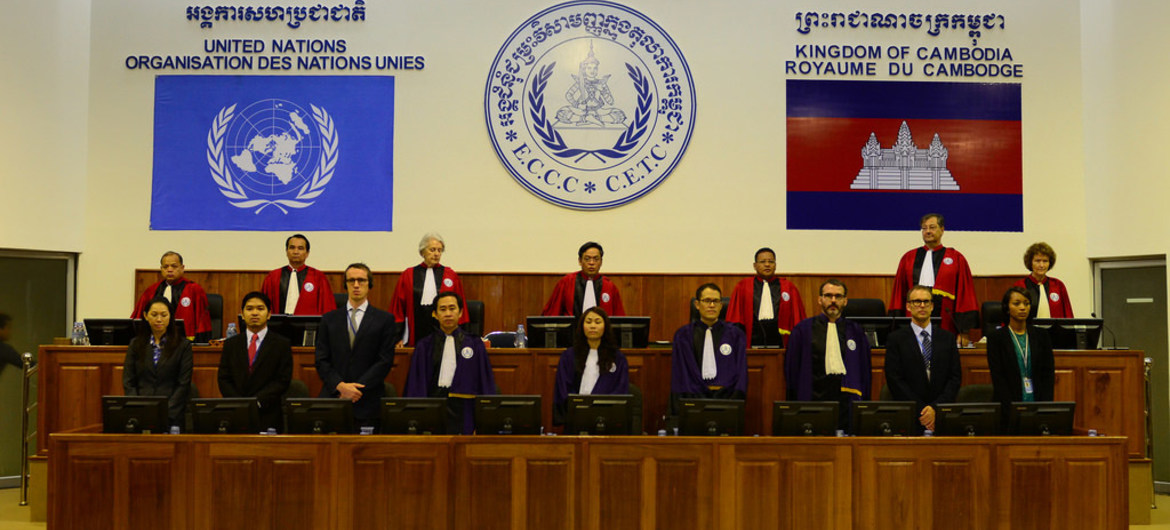 THE GENOCIDE VERDICT OF THE UN BACKED CAMBODIA COURT AND THE 1915 EVENTS
THE GENOCIDE VERDICT OF THE UN BACKED CAMBODIA COURT AND THE 1915 EVENTS
Mehmet Oğuzhan TULUN 30.11.2018 -
 SOME CRITICISMS REGARDING PROF. DR. ERIK-JAN ZÜRCHER’S CENTENNIAL STATEMENT - II
SOME CRITICISMS REGARDING PROF. DR. ERIK-JAN ZÜRCHER’S CENTENNIAL STATEMENT - II
Mehmet Oğuzhan TULUN 14.06.2015 -
 MEDDLING IN TURKISH-ARMENIAN RELATIONS: PROPOSED AMENDMENTS ON THE EUROPEAN PARLIAMENT RESOLUTION ON 2014 COMMISSION PROGRESS REPORT ON TURKEY
MEDDLING IN TURKISH-ARMENIAN RELATIONS: PROPOSED AMENDMENTS ON THE EUROPEAN PARLIAMENT RESOLUTION ON 2014 COMMISSION PROGRESS REPORT ON TURKEY
Mehmet Oğuzhan TULUN 03.05.2015 -
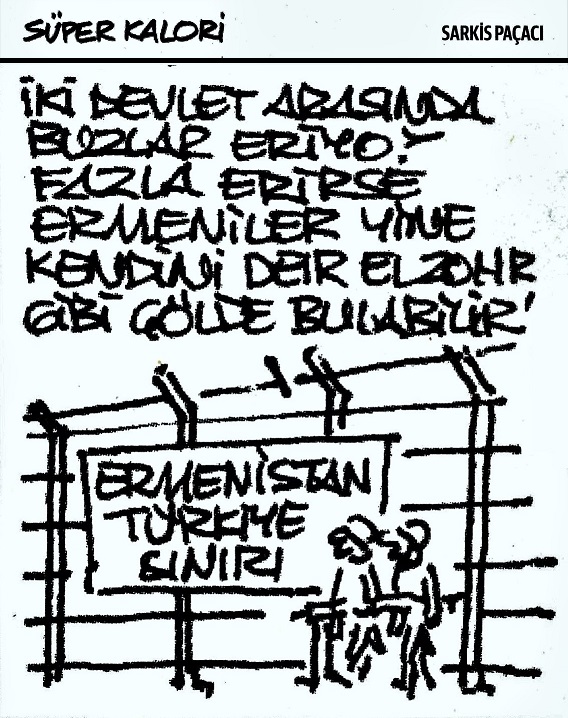 OPPOSITION AGAINST THE TURKEY-ARMENIA NORMALIZATION PROCESS THROUGH THE USE OF CARTOONS
OPPOSITION AGAINST THE TURKEY-ARMENIA NORMALIZATION PROCESS THROUGH THE USE OF CARTOONS
Mehmet Oğuzhan TULUN 13.05.2022 -
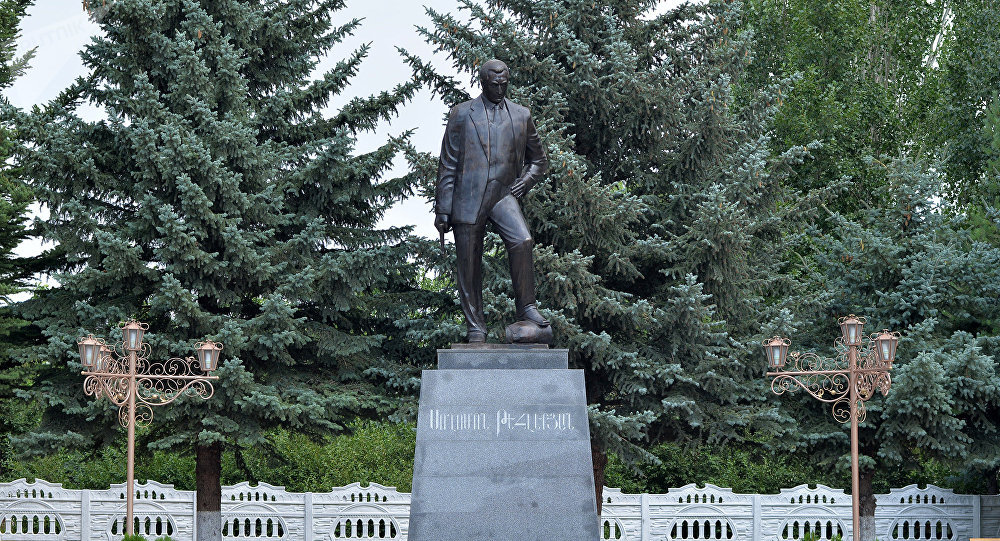 ARMENIA AND THE VENERATION OF TERRORISTS - II
ARMENIA AND THE VENERATION OF TERRORISTS - II
Mehmet Oğuzhan TULUN 16.09.2019
-
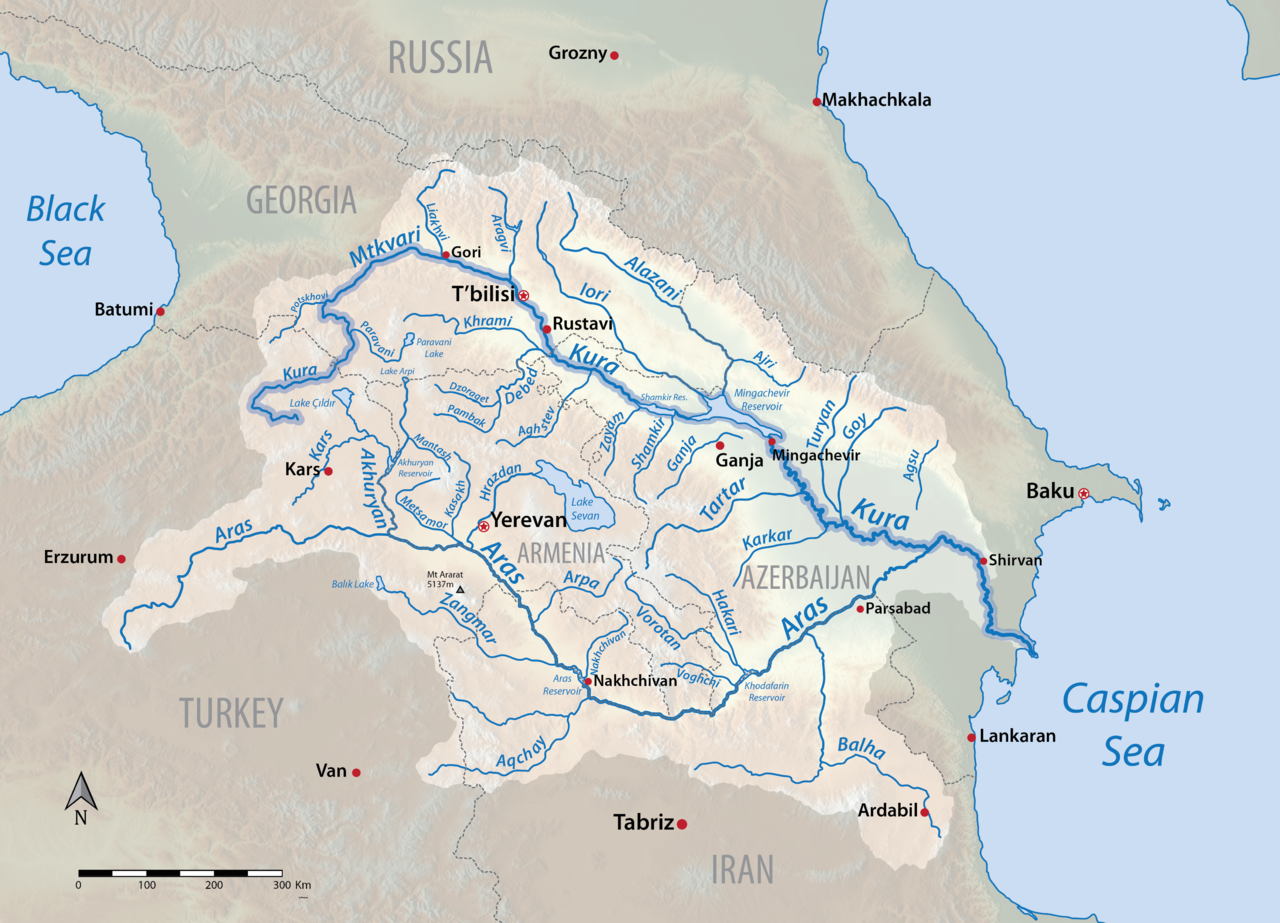 HYDROPOLITICS, TRANSBOUNDARY RIVERS, AND THE SOUTH CAUCASUS
HYDROPOLITICS, TRANSBOUNDARY RIVERS, AND THE SOUTH CAUCASUS
Tutku DİLAVER 11.04.2022 -
 ARMENIA’S DESPERATE SEARCH FOR FOREIGN INTERVENTION AND ITS HISTORICAL ANTECEDENTS: “THREADS OF CONTINUITY”
ARMENIA’S DESPERATE SEARCH FOR FOREIGN INTERVENTION AND ITS HISTORICAL ANTECEDENTS: “THREADS OF CONTINUITY”
AVİM 14.10.2020 -
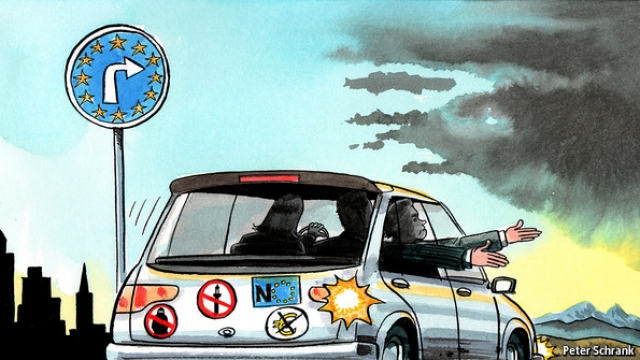 RISING ISLAMOPHOBIA IN THE WESTERN WORLD AND THE TURKISH-ARMENIAN CONTROVERSY
RISING ISLAMOPHOBIA IN THE WESTERN WORLD AND THE TURKISH-ARMENIAN CONTROVERSY
Mehmet Oğuzhan TULUN 15.03.2019 -
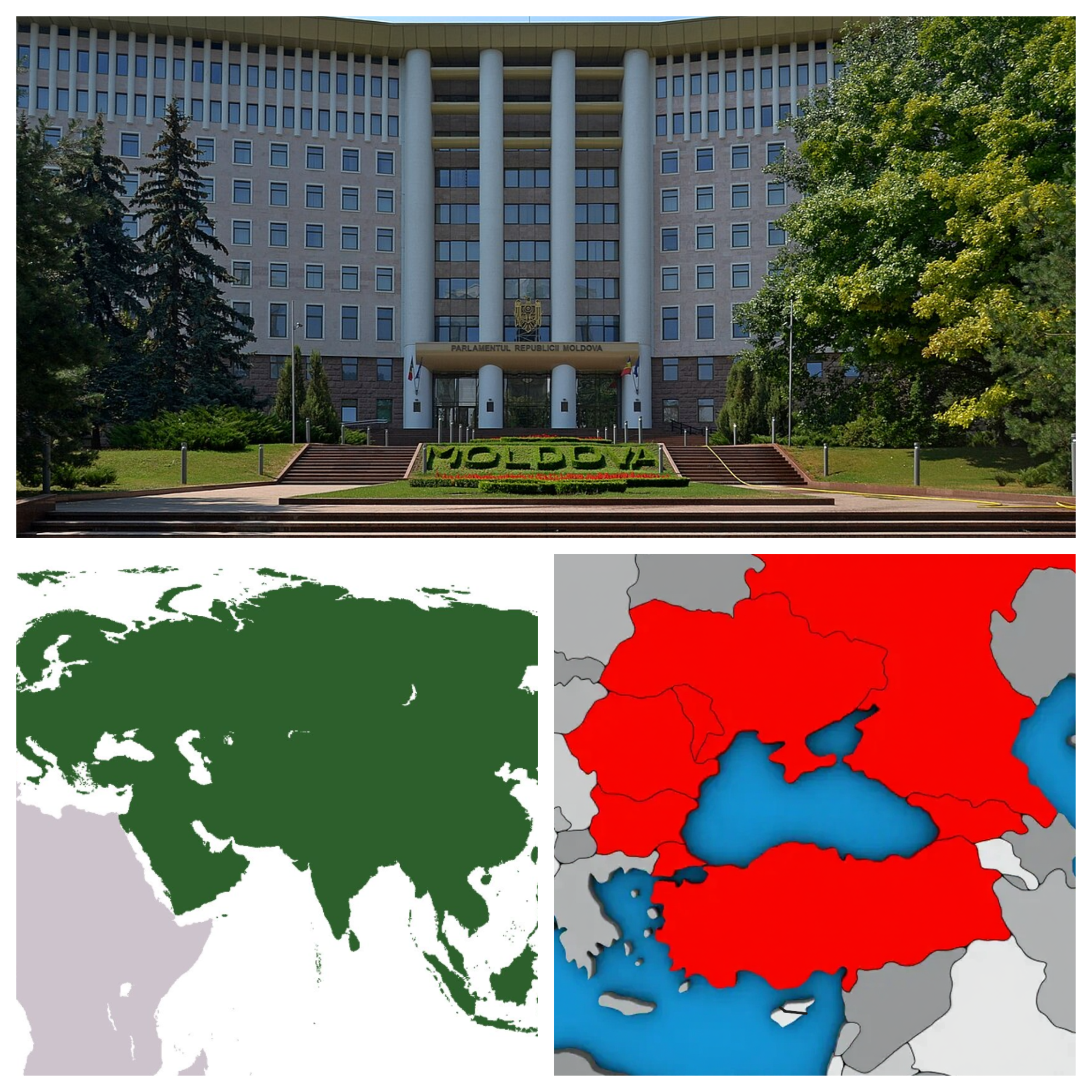 REFORMING MOLDOVA: STABILITY THROUGH CONSTRUCTIVE EURASIANISM
REFORMING MOLDOVA: STABILITY THROUGH CONSTRUCTIVE EURASIANISM
Teoman Ertuğrul TULUN 24.10.2025 -
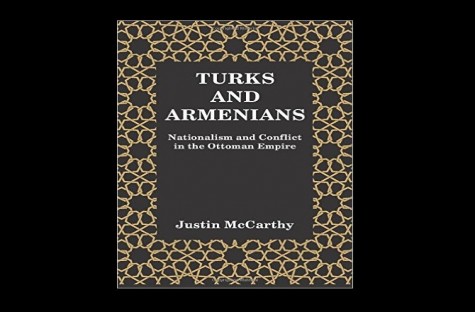 CHAPTER BY CHAPTER SYNOPSIS AND REVIEW OF TURKS AND ARMENIANS: NATIONALISM AND CONFLICT IN THE OTTOMAN EMPIRE BY JUSTIN MCCARTHY - 3
CHAPTER BY CHAPTER SYNOPSIS AND REVIEW OF TURKS AND ARMENIANS: NATIONALISM AND CONFLICT IN THE OTTOMAN EMPIRE BY JUSTIN MCCARTHY - 3
Seher ÇELEN 22.10.2015
-
25.01.2016
THE ARMENIAN QUESTION - BASIC KNOWLEDGE AND DOCUMENTATION -
12.06.2024
THE TRUTH WILL OUT -
27.03.2023
RADİKAL ERMENİ UNSURLARCA GERÇEKLEŞTİRİLEN MEZALİMLER VE VANDALİZM -
17.03.2023
PATRIOTISM PERVERTED -
23.02.2023
MEN ARE LIKE THAT -
03.02.2023
BAKÜ-TİFLİS-CEYHAN BORU HATTININ YAŞANAN TARİHİ -
16.12.2022
INTERNATIONAL SCHOLARS ON THE EVENTS OF 1915 -
07.12.2022
FAKE PHOTOS AND THE ARMENIAN PROPAGANDA -
07.12.2022
ERMENİ PROPAGANDASI VE SAHTE RESİMLER -
01.01.2022
A Letter From Japan - Strategically Mum: The Silence of the Armenians -
01.01.2022
Japonya'dan Bir Mektup - Stratejik Suskunluk: Ermenilerin Sessizliği -
03.06.2020
Anastas Mikoyan: Confessions of an Armenian Bolshevik -
08.04.2020
Sovyet Sonrası Ukrayna’da Devlet, Toplum ve Siyaset - Değişen Dinamikler, Dönüşen Kimlikler -
12.06.2018
Ermeni Sorunuyla İlgili İngiliz Belgeleri (1912-1923) - British Documents on Armenian Question (1912-1923) -
02.12.2016
Turkish-Russian Academics: A Historical Study on the Caucasus -
01.07.2016
Gürcistan'daki Müslüman Topluluklar: Azınlık Hakları, Kimlik, Siyaset -
10.03.2016
Armenian Diaspora: Diaspora, State and the Imagination of the Republic of Armenia -
24.01.2016
ERMENİ SORUNU - TEMEL BİLGİ VE BELGELER (2. BASKI)
-
AVİM Conference Hall 24.01.2023
CONFERENCE TITLED “HUNGARY’S PERSPECTIVES ON THE TURKIC WORLD"









